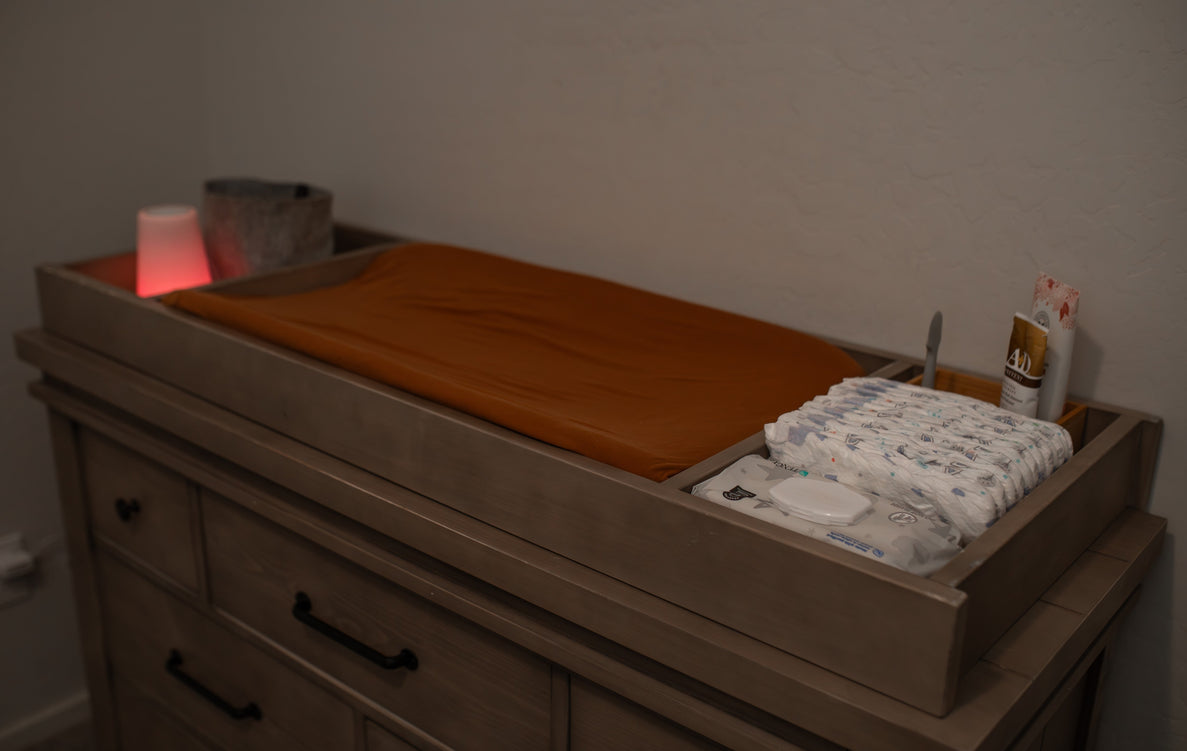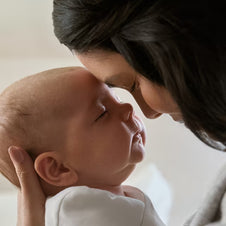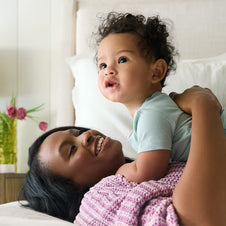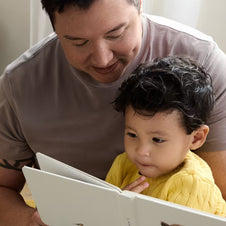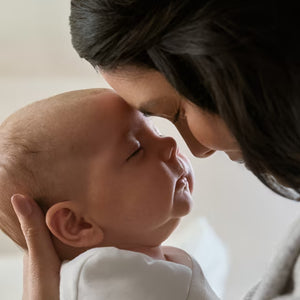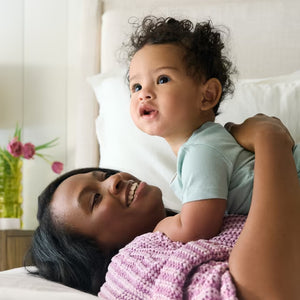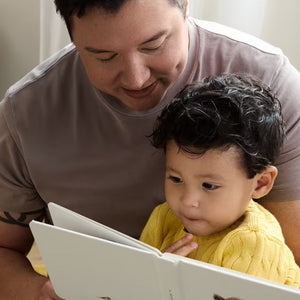Let’s talk about changing diapers at night. I’ll address the most common questions, including how often to change a newborn diaper at night, if you should wake your baby to change a poopy diaper, when to stop changing diapers at night, and more.
Taking Cara Babies Classes
How often should you change a newborn diaper at night?
You’ll need to change your newborn’s diaper about every 3 hours during those first few weeks, including overnight. Of course, if your newborn has a poopy diaper, they should be cleaned and changed as soon as possible. As your newborn gets a little older, they can go longer between diaper changes.
These are the times I typically recommend changing a newborn’s diaper at night:
-
When you’re feeding your newborn.
-
When you’re caring for your newborn during a nighttime waking and their diaper is wet or soiled.
Expert Tip: Be sure to let your pediatrician know if your newborn is having less than 5-6 wet diapers in a 24-hour period.
How often should you change a baby or toddler’s diaper at night?
As often as needed. If your baby or toddler’s diaper is soaked through, leaking, or dirty, it needs to be changed. Most babies won’t be bothered if their diaper is a bit wet (not soaked or leaking).
Keep in mind that you don’t necessarily need to change your baby’s diaper just because they wake during the night. Of course you can always change your baby’s diaper if you feel it’s needed. However, an unnecessary diaper change can make getting back to sleep more difficult. When you’re caring for your baby or toddler during a night waking, check to see if their diaper is dirty or leaking. If not, it’s probably okay to hold off on a change.
Diapers are designed to move moisture away from a baby or toddler’s skin. So if your little one is wearing an absorbent diaper and has a thick layer of diaper cream, we typically don’t need to worry about skin issues overnight.
Expert Tip: As part of the bedtime routine, coat your baby’s bottom generously with diaper cream or a protective barrier like Aquaphor. This shields sensitive skin from moisture, which can help prevent or reduce diaper rashes.
If you have any concerns about whether you need to wake your baby or toddler for diaper changes, please speak with your pediatrician.
Should I wake my baby to change a poopy diaper?
If you know for certain that your baby has a poopy diaper at night, you should change it. But, please don’t stress if you don’t realize that your little one has a dirty diaper right away. Some babies either don’t fully awaken when they poop during the night or simply aren’t upset if their diaper is dirty. In these cases, you may not know that the diaper is dirty until you go into their room long after they’ve pooped.
Be sure to apply a thick layer of diaper cream at night to help avoid skin irritation.(1) If you’re worried about waking your baby to change a dirty diaper, follow my tips for minimizing sleep disruptions while changing diapers at night.
Expert Tip: If it seems like your little one often wakes with a dirty diaper during the early morning hours, they may be pooping upon waking and not in the middle of the night. If this is happening consistently for your little one and causing early morning struggles, know that this can sometimes be a phase. Treat that diaper change just like you would in the middle of the night, take a look at what your little one is eating before bedtime (move those high-fiber foods to earlier in the day for a few days), and continue with your healthy sleep habits.
Should you change the diaper before or after a night feeding?
Especially for newborns, I recommend changing your baby’s diaper before (or even in the middle) of a night feeding. This can wake your baby up just enough that they take a good, full feeding. If you wait until after the feeding to change your little one's diaper, it could fully wake them just as they’re about to drift back to sleep.
Of course, if your baby poops at the end of a night feeding, then I do recommend changing their diaper. Your baby may need a bit more help (rocking, holding them a bit longer, etc.) getting back to sleep if a diaper change wakes them up, that’s okay!
Helpful Hint: My classes will walk you through exactly what to do to help your little one back to sleep after a night feeding (or wean night feedings, when you and your baby are ready).
When do you stop changing diapers at night?
This varies from baby to baby. Many babies will need diaper changes at night until they wean all night feedings. However, after the newborn stage, if your little one can take a good feeding without a diaper change and doesn’t struggle with leaks or diaper rash, you don’t need to change them at night. Of course, if your baby or toddler wakes during the night and their diaper is leaking or dirty, go ahead and change the diaper.
Are overnight diapers worth it?
Yes! Overnight diapers are designed to be more absorbent than regular diapers. Using an overnight diaper can help keep your little one more comfortable during longer stretches of sleep, even if your little one tends to be a heavier wetter. I recommend using a diaper one size larger than your little one’s daytime size to help prevent leaking. Check that the tabs are secured snuggly around their lower belly and that the ruffles are pulled out around their legs.
Expert Tip: If your little one consistently leaks out of their overnight diaper, even after going up a size, try adding a Sposie insert.
How can I do night time diaper changes with minimal sleep disruptions?
Here are my tips for changing diapers at night with the least disruption to your little one’s sleep:
1. Minimize light.
Use the least amount of light possible when changing diapers at night. I recommend using red light as it’s less disruptive than other colors, especially in comparison to blue or white light.(2) (You don’t need anything fancy; you can simply switch out the bulb.)
2. Be prepared.
Make sure that you have all of your diapering supplies readily available for nighttime diaper changes. Have a diaper caddy stocked and nearby where you’ll be changing diapers at night.
3. Keep it quick and calm.
We want everything about this time to still feel like the middle of the night. Try to avoid engaging in conversation. This will be stimulating for your little one and make it more difficult to fall back to sleep.
4. Have a plan.
Falling back to sleep after a nighttime diaper change goes more smoothly when your little one has learned the skill of falling asleep independently. If your baby or toddler is struggling with nighttime diaper changes or getting back to sleep, I can help. In my classes, I'll teach you how to set your little one up for sleep success and minimize sleep disruptions at night.
I'll give you a customizable plan for restful nights to help your family thrive whether you have a newborn (0-4 months), baby (5-24 months), or toddler (2-4 years).

